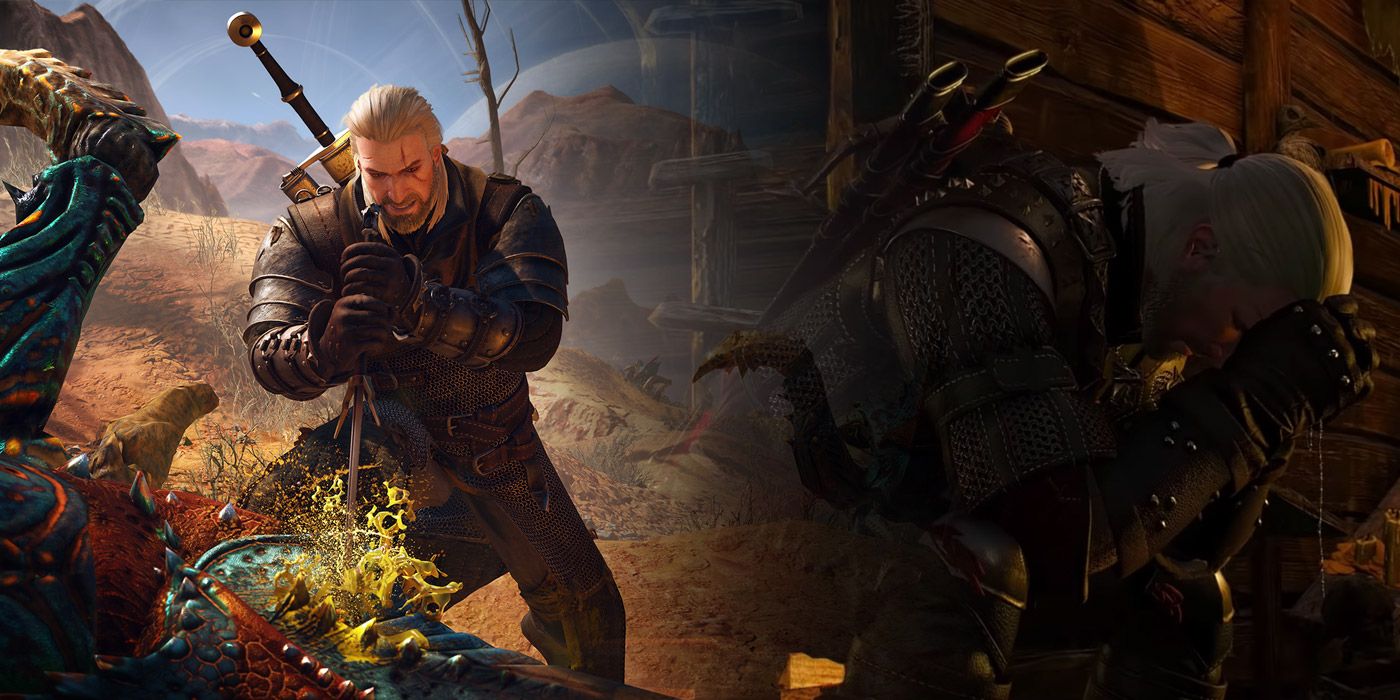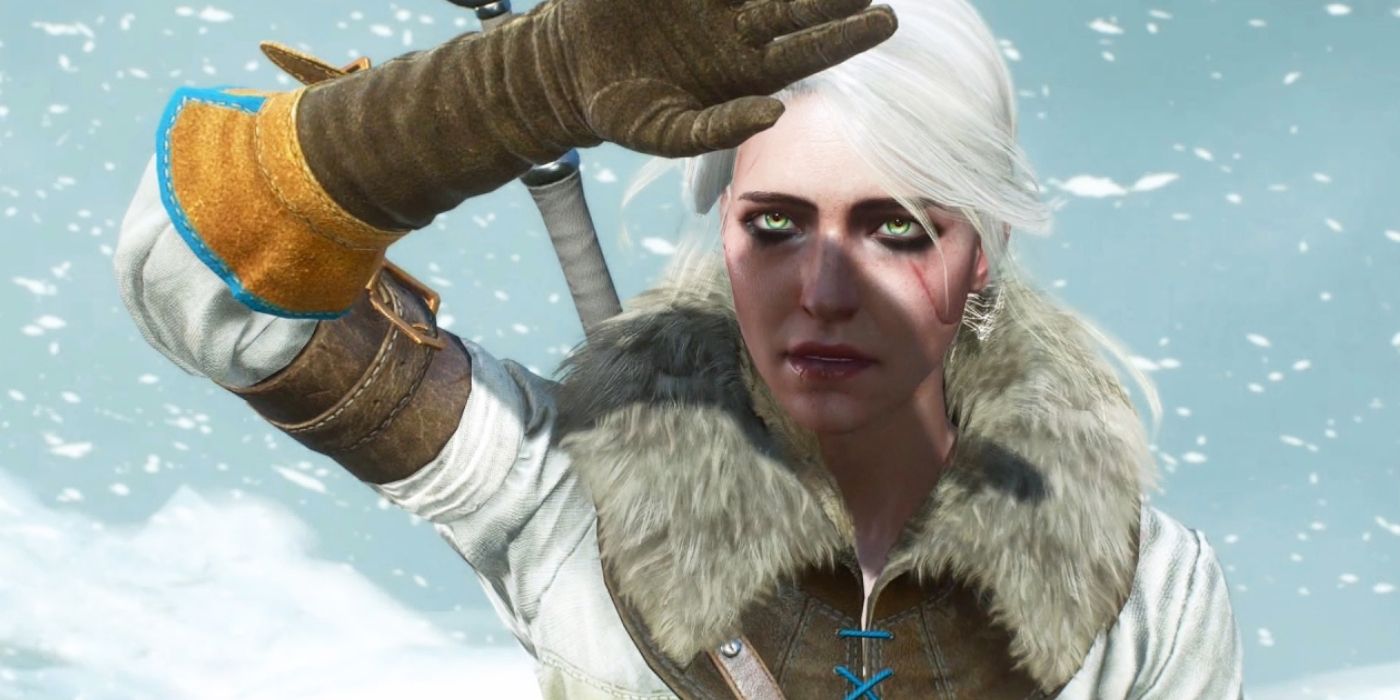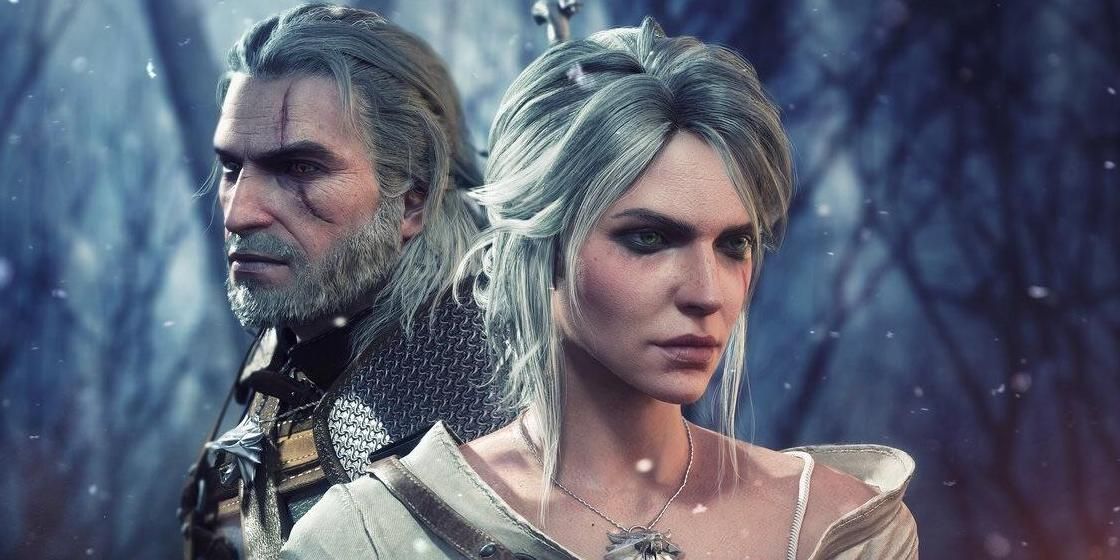As with the books, the main plot driver of Witcher 3: Wild Hunt is Geralt's hunt for Ciri, his adoptive-daughter. With that in mind, players may have thought they were being an excellent fatherly figure for her, telling her "You don't have to be good at everything" after the battle at Kae Morhen, thinking that this would set a good example and be an important learning moment. Still, many players would find themselves at the worst ending of the game, despite their best efforts. Perhaps this is because players put their best foot forward, and the game rewarded them with what's meant not to be a "bad" ending, but rather just a sad ending.
The ending of Witcher 3 can come in the form of three main takes: the good, the bad, and the best. In comparison to an ending to Ciri becoming a witcher or an ending where Ciri becomes the emperess, an ending where Ciri presumably dies by giving herself over to the White Frost might seem bad. It's not ideal, but still serves as a cathartic yet somber conclusion to the epic tale of the Witcher and his daughter.
Ciri's Story Arc
No matter which way Witcher 3 ends, any of the three can still be considered fully conclusive finales, even the one dubbed "bad" by the community. From the get-go, much of the focus on Ciri is not just the potential she possesses as a witcher-in-training, but also her unique abilities as the last heir to the ancient elder bloodline. This prophecy peaks when she unintentionally unleashes her power on the Wild Hunt, but the White Frost still threatens to kill all life in every world. In the end, Cirilla sacrifices herself to end the White Frost, but whether or not she lives or reportedly dies differs between endings.
While this is sad and likely not the ending many players were looking for with Witcher 3, it still finishes off Ciri's ending in a cathartic way, though sadder than the rest. This is coming of age story for the young princess. After learning of the true nature of her elder blood power and its limitations, she uses it to end a major threat. No matter which ending, she knowingly steps inside the tower to sacrifice herself nobly for the cause of saving mankind.
In many ways, the game pushes the narrative that Geralt needs to let go of Ciri and let her be her own person and find her own path. Despite being a caring and protective father, Ciri boldly steps into the source of the White Frost, and Geralt allows her to. He's finally able to let her make her own decision as the wise young woman that she is, even if it results in her death. However, it's for a higher purpose.
Geralt's Role in Witcher 3
The "bad" part of the term "bad ending" comes into play when Geralt finally gets her medallion back, defeated, as if he blames himself for not being able to protect her better as a father and as a witcher. Without Ciri, Geralt feels he's nothing, but without Ciri's sacrifice, the world would be nothing.
The game is rewarding, in a way, because the player has successfully defeated both the White Frost and the Wild Hunt, the two main antagonists of the game. But Witcher 3 punishes the player by asking the question: "is this story about Geralt, or is it about Ciri?" Players may not realize the game isn't about Geralt's adventures but rather Ciri maturing, which is why the three endings will all revolve around her.
Will she fulfill her destiny as a princess? Will she finish her training and become a witcher? Or will she fulfill her prophecy and save the world from dying in frost with her elder blood? No matter the ending, Ciri's purpose is fulfilled, one is simply sadder than the rest.
Witcher 3: Wild Hunt is playable on PC, PS4, Switch, and Xbox One with PS5 and Xbox Series X ports set to release in 2021.



